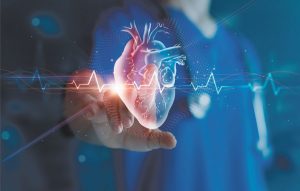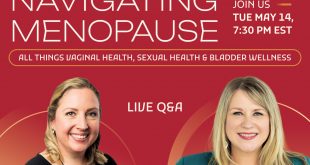 An electrophysiologist is a medical specialist who plays a crucial role in diagnosing and treating various heart rhythm disorders, also known as arrhythmias. Their expertise lies in understanding the heart’s electrical activity and using that knowledge to provide effective care to patients. Here, we will delve into the role of an electrophysiologist in cardiology, focusing on their responsibilities and the conditions they address.
An electrophysiologist is a medical specialist who plays a crucial role in diagnosing and treating various heart rhythm disorders, also known as arrhythmias. Their expertise lies in understanding the heart’s electrical activity and using that knowledge to provide effective care to patients. Here, we will delve into the role of an electrophysiologist in cardiology, focusing on their responsibilities and the conditions they address.
1. Diagnosing Arrhythmias: Electrophysiologists use various diagnostic tools to identify and classify different types of arrhythmias. These tools may include electrocardiograms (ECGs or EKGs), Holter monitors, event monitors, and electrophysiology studies (EPS). They meticulously analyze the heart’s electrical patterns to pinpoint irregular rhythms.
2. Treatment Planning: Once an arrhythmia is diagnosed, electrophysiologists develop individualized treatment plans based on the specific condition and needs of the patient. These plans may involve lifestyle modifications, medications, or more advanced interventions.
3. Cardiac Ablation: Electrophysiologists are highly skilled in performing cardiac ablation procedures. During ablation, they use catheters to target and eliminate the abnormal electrical pathways causing arrhythmias. This procedure is particularly effective for supraventricular tachycardia, atrial fibrillation, atrial flutter, premature ventricular contractions (PVC) etc.
4. Implantable Devices: Electrophysiologists are trained to implant and manage various cardiac devices, such as pacemakers and implantable cardioverter-defibrillators (ICDs). These devices help regulate the heart’s rhythm and can provide life-saving interventions if dangerous arrhythmias occur.
5. Risk Assessment: Electrophysiologists assess the risk factors associated with arrhythmias and help patients understand their condition’s implications. They may educate patients on lifestyle changes to reduce risk, such as avoiding excessive caffeine or alcohol intake.
6. Collaboration: Electrophysiologists often collaborate closely with other healthcare professionals, including cardiologists, cardiovascular surgeons, and primary care physicians. This teamwork ensures comprehensive care for patients with heart rhythm disorders.
7. Research and Advancements: Many electrophysiologists are involved in research to advance the understanding and treatment of arrhythmias. They stay updated on the latest technologies and treatment options to provide the best care possible.
8. Patient Education: Electrophysiologists are vital in educating patients about their conditions. They explain the nature of arrhythmias, available treatment options, potential risks, and the importance of regular follow-up appointments.
9. Monitoring and Follow-Up: Electrophysiologists closely monitor their patient’s progress and adjust treatment plans as necessary after treatment. They ensure the heart’s rhythm remains stable and address new concerns.
Shalin S. Shah, MD
Dr. Shalin Shah is board-certified in cardiovascular disease and clinical cardiac electrophysiology. He earned his medical degree from Baroda Medical College in Baroda, India. Dr. Shah continued his medical education by completing an internal medicine residency at Henry Ford Hospital in Detroit, Michigan. He then completed a cardiology fellowship at Wright State University in Dayton, Ohio, followed by a cardiac electrophysiology fellowship from Yale University School of Medicine in New Haven, Connecticut. Dr. Shah has practiced in the Tampa Bay area as a cardiac electrophysiologist since 2007. His primary interest is the management of various arrythmias like atrial fibrillation, atrial flutter, SVT, ventricular tachycardia, advanced therapies like ablations, watchman, lead-less pacemakers, defibrillators, cardiac resynchronization therapy, left bundle branch and his bundle pacemakers etc. An accomplished author, Dr. Shah has contributed numerous articles in peer-reviewed publications including the Journal of the American College of Cardiology and the British Journal of Clinical Governance. He is part of BayCare Medical Group serving the Tampa area, a member of the American College of Cardiology and the Heart Rhythm Society and affiliated with St. Joseph’s Hospital.
BayCare Medical Group Cardiology
4612 N Habana Ave Fl 2
Tampa, FL 33614
(813) 875-9000
 Central Florida Health and Wellness Magazine Health and Wellness Articles of the Villages
Central Florida Health and Wellness Magazine Health and Wellness Articles of the Villages


